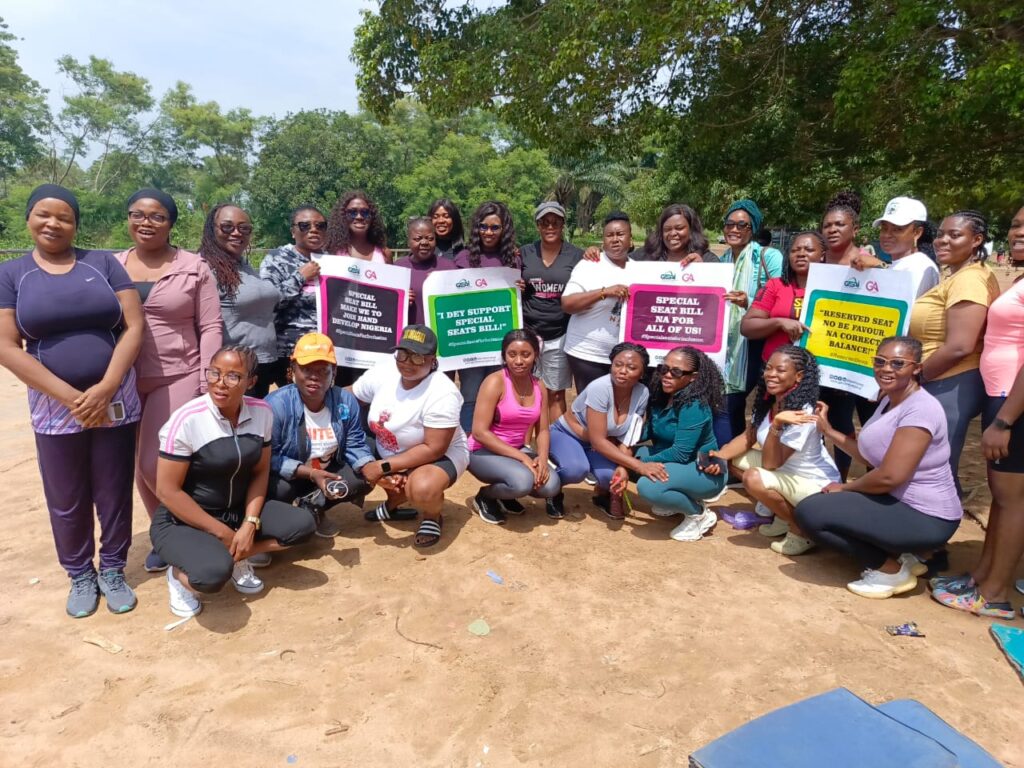By Queen Kunde
Women journalists from across Nigeria have issued a passionate call for the urgent passage of the Special Seat Bill, describing it as a critical remedy for the country’s longstanding gender imbalance in political representation.
The renewed advocacy was the highlight of the Fit for Inclusion programme held in Abuja, a powerful convergence of media professionals, gender advocates, and civil society leaders hosted by the Women in Media Development Initiative (WIMDI), in collaboration with the Nigeria Association of Women Journalists (NAWOJ) FCT Chapter, and Gender Strategy Advancement International (GSAI).
At the heart of the event was the demand for a legislative shift. The Special Seat Bill, currently before the National Assembly, seeks to amend the Constitution to reserve additional legislative seats for women in the Senate, House of Representatives, and State Houses of Assembly. Sponsored by Deputy Speaker Benjamin Kalu and 12 other lawmakers, the bill has gained growing support, particularly among women in media and advocacy.
“This bill isn’t just about politics, it’s a corrective mechanism to address historical injustice,” one speaker declared, underscoring the urgency to rectify Nigeria’s abysmal record on female representation.
Currently, only 3 out of 109 senators and 15 out of 360 House members are women, placing Nigeria among the lowest globally in terms of gender inclusion in governance.
Comrade Bassey Ita Ikpang, Chairperson of NAWOJ FCT, charged media professionals to become torchbearers of truth and advocates for reform.
“We must shift the narrative from tokenism to competence. Women should no longer be judged by gender, but by their capacity. The media must spotlight what women bring to the table, not just the seats they occupy.”
Ikpang also called on journalists to combat the myth that women don’t support each other.
“Let’s feel solidarity. Let’s speak it. Let’s show it. The time to unite is now.”
Executive Director of GSAI and former political candidate, Adaora Sydney Jack, shared her lived experience of systemic exclusion, saying:
“Until I contested for office, I didn’t know how deeply the system is rigged. We need more women in the room—because change won’t come from outside.”
Her words echoed the sentiments of many attendees, who urged grassroots mobilization, digital advocacy, and pressure on lawmakers as key next steps.
Veteran journalist Lara Owoeye-Wise called for a nationwide social media blitz to drum up support.
“Every NAWOJ member must lend her platform, radio, online, print. If this bill passes, it will be because we were loud, relentless, and united.”
The event’s closing note came from Osasu Oguche, founder of TOS Group, who reminded participants that inclusion is not optional in a true democracy.
“Politics is decision-making. If women are absent, they’re excluded from decisions that shape their lives. We must fix that.”
The Fit for Inclusion programme ended on a resounding call to action: the time to act is now. With unified voices, strategic media engagement, and grassroots pressure, the Special Seat Bill could be the game-changer Nigerian democracy has long awaited.
